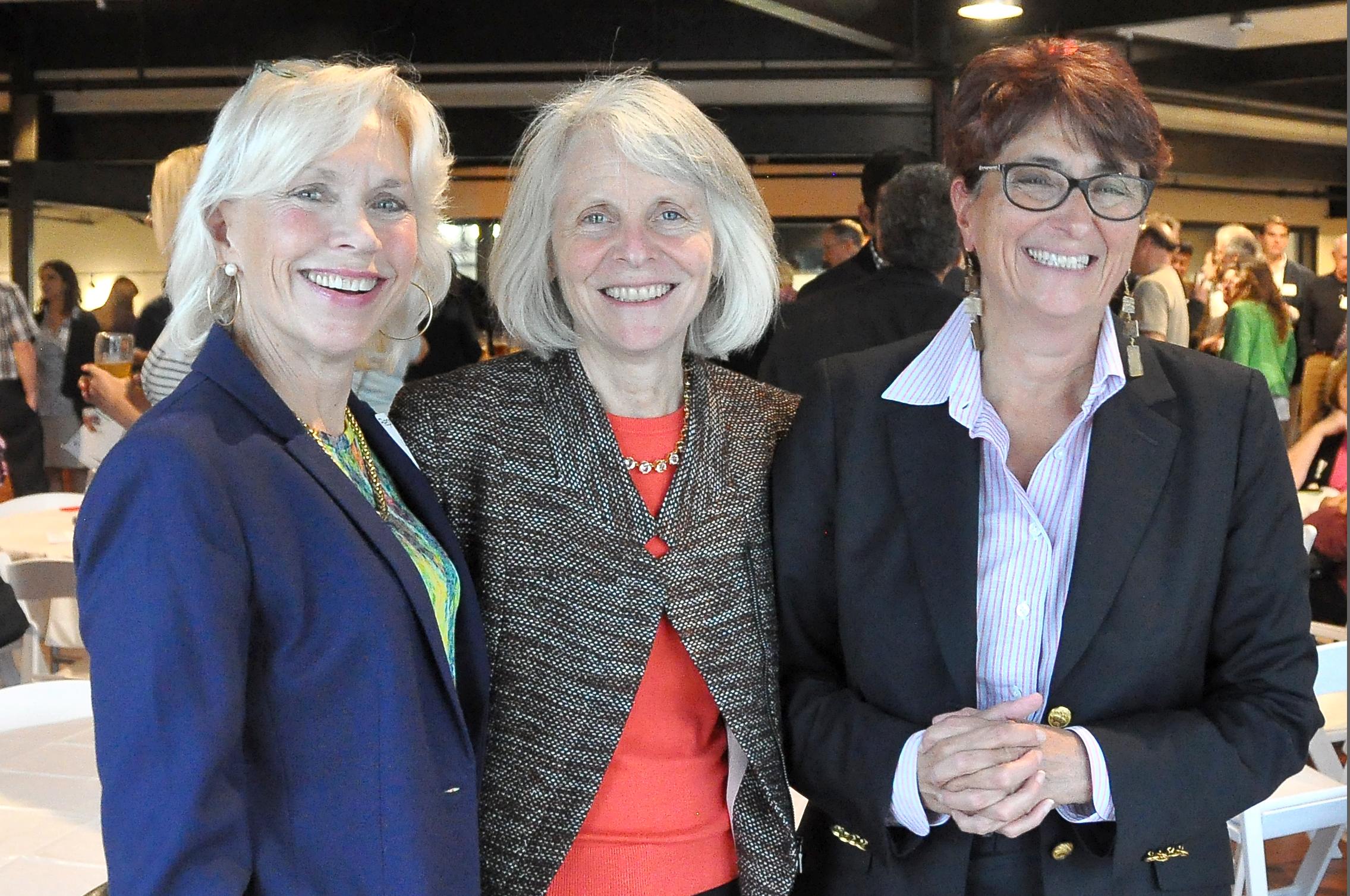Dr. Susan Froshauer leads Connecticut United for Research Excellence

Representative Lonnie Reed, Commissioner Catherine Smith and Dr. Susan Froshauer at a recent Bioscience ClubhouseCT funded by CTNext. (Photo by missionbranding.com)
Last spring, Connecticut’s leaders in biosciences – from academics to entrepreneurs – attended the BIO International Convention, the world’s largest biotech expo, for the first time in more than a decade. The event represented a major step for Connecticut, showcasing the state as a serious biosciences hub, says Dr. Susan Froshauer, JCC alumna and CEO of Connecticut United for Research Excellence. In Connecticut, approximately 800 biosciences and healthcare companies provide about 50,000 jobs.
CURE is Connecticut’s nonprofit biosciences organization, operating as a professional network, business incubator, entrepreneur idea exchange, and biotech advocate. The organization has a 20-year history of building the biotech community in the state, and it is led by a very distinguished Board of Directors, says Dr. Froshauer, who was recruited in 2013 to strengthen its network of more than 2,500 businesses, educators, academics, entrepreneurs, and investors.
Dr. Froshauer’s goal is straightforward but by no means simple: to create critical mass in Connecticut’s bioscience community by building the bridges necessary to transform cutting edge biosciences into funded, successful startup companies. To do that, she connects diverse stakeholders in the industry and helps scientists get companies off the ground by connecting them with government funding, investors, like-minded companies, and all kinds of resources on everything from insurance to legal needs. Additionally, a business incubator, called the CURE Innovations Commons, is supported in part by a $4.2 million grant from the state of Connecticut and corporate sponsors. Housed in a building adjacent to the Pfizer campus donated by the company, the facility will offer lab space, a library of shared equipment, a coffee and beer bar to foster informal collaboration, and meeting spaces for educational programming, events or for startups to practice pitches to investors beginning in Spring 2016. Complementing these efforts, Dr. Froshauer also works to educate legislators about how to foster a successful economic cluster for the biosciences.
Dr. Froshauer’s passion for science, business, and working with teams developed steadily over her career. Trained in bacterial genetics as a graduate student, she began thinking about how cell biology tools could address basic genetics problems while she was a JCC Fellow in Dr. Ari Helenius’s lab (then at Yale University, currently at ETH Zurich). Her focus shifted when she realized that understanding and interfering with pathogenesis could lead to new medicines. Dr. Helenius’s lab was culturally diverse, a place where conventions and biases were questioned, she says. “And Ari taught me to think broadly about science and career opportunities.”
Following her postdoctoral fellowship, Dr. Froshauer eventually landed at Pfizer, and moved up as a Senior Researcher and then Licensing Executive. She enjoyed her work on new classes of antibiotics, but found that she loved the people of science even more than being at the bench. Multidisciplinary teams excited her most. Soon she was orchestrating collaborations between Pfizer and universities worldwide.
The business aspect of her work came so naturally to her that she left Pfizer in 2000 to co-found her own business, RibX, with Dr. Thomas Steitz, a 2009 Nobel Prize winner and also a JCC alumnus. During her 10 year tenure at Rib-X, Dr. Froshauer raised $160 MM of venture capital, built a team, and an early portfolio of potential new antibiotics.
Today, Dr. Froshauer harnesses her multidisciplinary experiences at CURE, and also as Entrepreneur in Residence at Yale, helping faculty transform projects with potential into thriving businesses while helping them curate and protect their intellectual property.
“We seek to grow a diverse community of sustainable companies,” she says. “And we wish to build an environment that encourages and supports the recruitment and retention of talented scientists and entrepreneurs.”